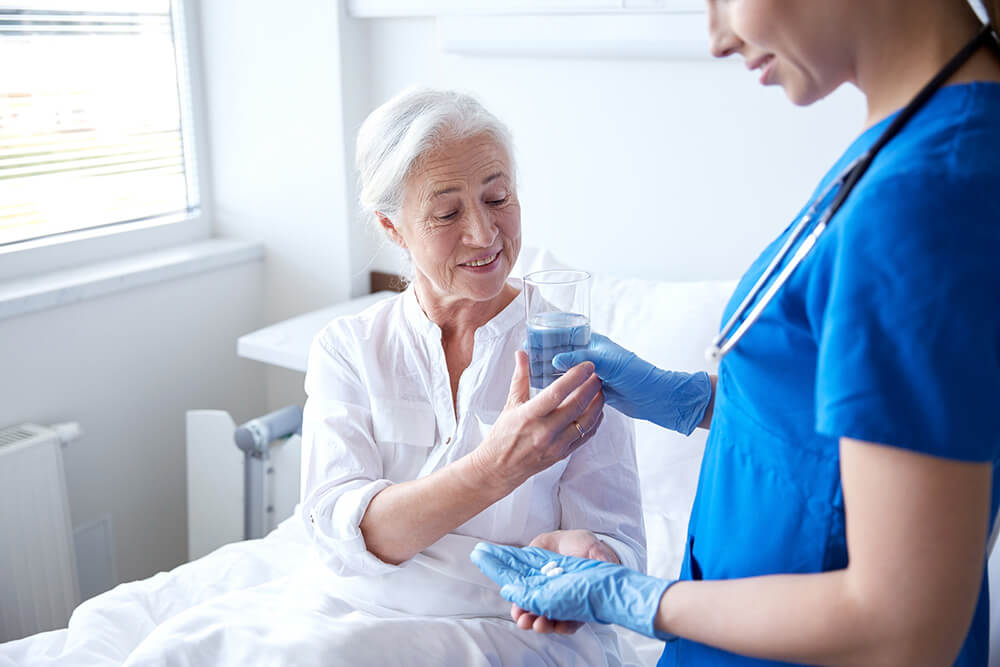
If you're on your way to becoming a licensed practical nurse (LPN), you probably already have a decent idea about the typical duties of an LPN. LPN training, of course, prepares you to competently handle the most pressing responsibilities of this profession. However, like so many things, working as an LPN is often a lot different than training to become one. Avoid unpleasant surprises as a licensed practical nurse by familiarizing yourself with some of the less commonly known duties that are handled by these professionals.
LPNs spend most of their time providing direct, basic care to patients in nursing homes, clinics, hospitals, and other healthcare settings. You are probably already aware that they do things like bathe, dress, and feed patients. What you may not realize, however, is that LPNs often fulfill many other duties during the course of a typical shift. Here are eight lesser-known LPN duties for you to be on the lookout for as you embark on this exciting career:
Advising and Educating Loved Ones
In addition to working directly and closely with patients, LPNs come into close, direct daily contact with their relatives and other loved ones. In situations where patients will return home following a stay in rehab or the hospital, LPNs are often charged with educating and advising relatives about proper care. As an LPN, then, you will sometimes find yourself acting as an educator not to other nurses, necessarily, but to patients' families. This is another reason why it's so crucial to have a firm grasp on any given situation, as you may have to explain it to others.
Providing Massages
No, LPNs don't work in spas. However, they are often asked to provide massages to patients for both physical and mental ailments. At first, you may be taken aback to be asked to do something like this. However, a crucial part of being an LPN is providing comfort. Oftentimes, a simple massage can work serious wonders. In some cases, massages may be part of the care plan. This is more common for physical injuries. Other times, massages are administered to help ease anxiety, stress and other unpleasant mental conditions. Don't be surprised if you find yourself giving massages from time to time.
Managing Medical Records
Depending on the facility, LPNs may be tasked with updating and otherwise managing electronic medical records. This is why it's important for aspiring LPNs to have a decent grasp on computer technology. If you work in a facility that has limited office staff, you will almost certainly be asked to assist with medical records management. Fortunately, this typically involves little more than performing a few quick updates or simply verifying that information is accurate. The work does not usually get any more technical than that, so you don't need to be a computer whiz.
Providing Childcare
True though it may be that LPNs are not babysitters, they often find themselves watching after little ones during the course of their shifts. As an LPN, it's important to remember that you simply need to be there to assist in whatever way that you can. Sometimes, this means entertaining or minding a patient's or patient's relative's child so that other work can be handled. In fact, you may be asked to do this by an RN or a physician who needs fewer distractions while working with a patient. You don't have to have experience caring for children to do this, so don't worry.
Processing Insurance Claims
Although LPNs don't actually process insurance claims, as this is work that requires some degree of training, they are often asked to help those who do. LPNs in many facilities assist with paperwork and other administrative tasks, and most facilities have a lot of insurance paperwork to contend with. When things are quiet, you may be asked to pitch in with work like this. It may sound like it is not your responsibility, but look at it as an opportunity to acquire some new skills. They could very well come in handy at some point down the road.
Collecting and Securing Test Samples
Facilities that have decent numbers of registered nurses, or RNs, don't usually expect LPNs to deal with tests like urine tests and blood work. However, in situations where staff and resources are limited, LPNs may be asked to handle at least some of the work. At the very most, you may be required to collect samples and to properly secure them so that they can be tested without fear of contamination. As an LPN, you will not actually test the samples or review the results, but you may be included in explaining results to patients and their families.
Supervising CNAs
If you've been told that LPNs are below everyone in health care facilities, you've been misinformed. Certified nursing assistants, or CNAs, have even fewer credentials and therefore tend to be tasked with the most basic responsibilities. While RNs sometimes train incoming CNAs, most facilities would rather not pull them away from their regular work. As a result, LPNs are often tasked with training or supervising new CNAs. This is a great opportunity to see how well you do in a supervisory role. If you enjoy it, you might consider moving into nursing management at some point in your career.
Licensed practical nurses' duties are not set in stone. One of the worst attitudes that you can have as an LPN is to refuse to do anything that's outside your job description. These less-common duties may seem extraneous to your usual LPN work, but they are actually opportunities for you to pick up new skills. Later, those skills could garner you better compensation and other perks.



